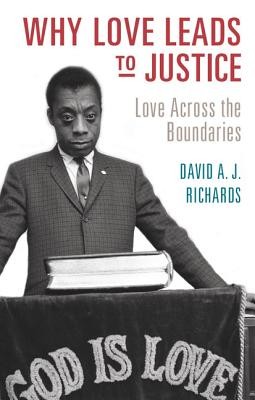
- We will send in 10–14 business days.
- Author: David A J Richards
- Publisher: Cambridge University Press
- ISBN-10: 1107129109
- ISBN-13: 9781107129108
- Format: 15.3 x 23.8 x 1.9 cm, hardcover
- Language: English
- SAVE -10% with code: EXTRA
Reviews
Description
This book tells the stories of notable historical figures who, by resisting patriarchal laws condemning adultery, gay and lesbian sex, and sex across the boundaries of religion and race, brought about lasting social and political change. Constitutional scholar David A. J. Richards investigates the lives of leading transgressive artists, social critics, and activists including George Eliot, Benjamin Britten, Christopher Isherwood, Bayard Rustin, James Baldwin, Eleanor Roosevelt, and Margaret Mead. Richards shows how ethical empowerment, motivated by love, allowed these figures to resist the injustices of anti-Semitism, racism, sexism, and homophobia, leading to the constitutional condemnation of these political evils in the United States, Britain, and beyond. Love and law thus grow together, and this book shows how and why. Drawing from developmental psychology (including studies of trauma), political theory, the history of social movements, literature, biography, and law, this book will be a thought-provoking tool for anyone interested in civil rights.
EXTRA 10 % discount with code: EXTRA
The promotion ends in 16d.15:21:43
The discount code is valid when purchasing from 10 €. Discounts do not stack.
- Author: David A J Richards
- Publisher: Cambridge University Press
- ISBN-10: 1107129109
- ISBN-13: 9781107129108
- Format: 15.3 x 23.8 x 1.9 cm, hardcover
- Language: English English
This book tells the stories of notable historical figures who, by resisting patriarchal laws condemning adultery, gay and lesbian sex, and sex across the boundaries of religion and race, brought about lasting social and political change. Constitutional scholar David A. J. Richards investigates the lives of leading transgressive artists, social critics, and activists including George Eliot, Benjamin Britten, Christopher Isherwood, Bayard Rustin, James Baldwin, Eleanor Roosevelt, and Margaret Mead. Richards shows how ethical empowerment, motivated by love, allowed these figures to resist the injustices of anti-Semitism, racism, sexism, and homophobia, leading to the constitutional condemnation of these political evils in the United States, Britain, and beyond. Love and law thus grow together, and this book shows how and why. Drawing from developmental psychology (including studies of trauma), political theory, the history of social movements, literature, biography, and law, this book will be a thought-provoking tool for anyone interested in civil rights.


Reviews